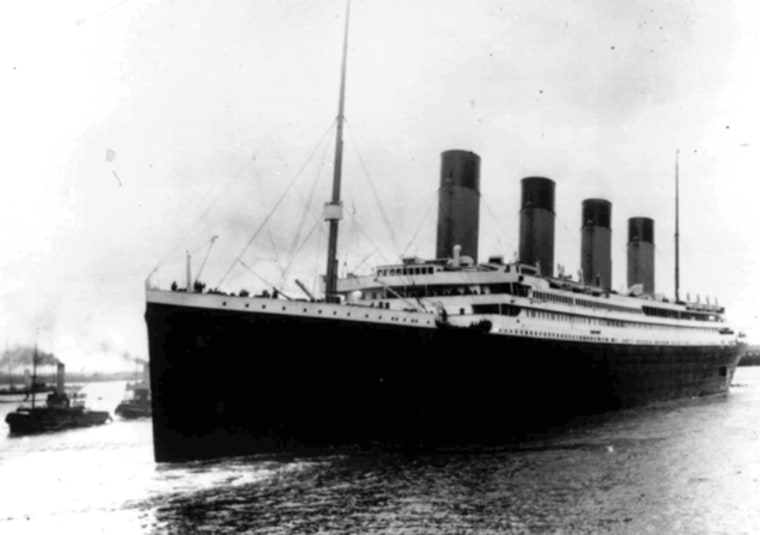British passengers on board the sinking Titanic died while politely queuing to get their place on a lifeboat, while Americans pushed their way on, according to new analysis of passenger data.
The Titanic struck an iceberg in the North Atlantic on April 14, 1912, and sank off the Newfoundland Coast within hours. Most did not survive the disaster — 1,517 perished while only 706 survived.
David Savage, a behavioral economist at Queensland University of Technology, Australia, and Bruno Frey, of the University of Zurich, Switzerland, spent more than a year studying survival rates from one of the worst maritime disasters in history.
The aim was to determine whether people reverted to a "survival of the fittest" mentality when it was a matter of life and death.
"The Titanic was built in Great Britain, operated by British subjects, and manned by a British crew. It is to be expected that national ties were activated during the disaster and that the crew would give preference to British subjects, easily identified by their language," the researchers said.
Savage and Frey realized that assumption was off after investigating passenger data.
They found that British passengers, who queued for a place in one of only 20 lifeboats provided for the 2,223 on board, had 10 percent lower chance of survival than any other nationality.
In contrast, Americans, who reportedly elbowed their way to the front of lines, had a 12 percent higher probability of survival than British subjects.
"Be British, boys, be British!" the captain, Edward John Smith, shouted out, according to witnesses.
"Being British" meant to forget mass panic behavior — everyone looking after themselves — and rather follow the social norm of "women and children first."
This social norm was indeed followed on the Titanic, proving that altruism does make a difference in life and death situations.
"Being female rather than male increased the probability of survival between 23.7 and 53.9 percentage points," the researchers wrote in the journal, CESifo Working Paper.
Similarly, children aged 15 and below were 30 percent more likely to survive than passengers aged 51 or more.
"Comparing the survival probability among women, we observe that having a child and being in the reproductive age has strong and robust impact on the survival probability. Having a child also increases the probability of surviving when considering also males," the researchers concluded.
Manners and altruism, aside, social class appeared to have an even stronger influence on who survived the disaster. Ideally, being a female with a child in first class would have produced the best chances for survival.
Passengers of the first and second class were advantaged: they likely had better access to information about the imminent danger, not to mention that they were closer to the boat deck.
Being a crew member also guaranteed a higher probability of survival, according to the researchers, who noted that crew members were able to access the lifeboats much more easily.
"This by no means indicates that the crew engaged in any behavior that would be deemed inappropriate. The testimony of the survivors does nothing but praise the crew, but this does not stop or limit them from having an informational advantage over the passengers," Savage told Discovery News.
